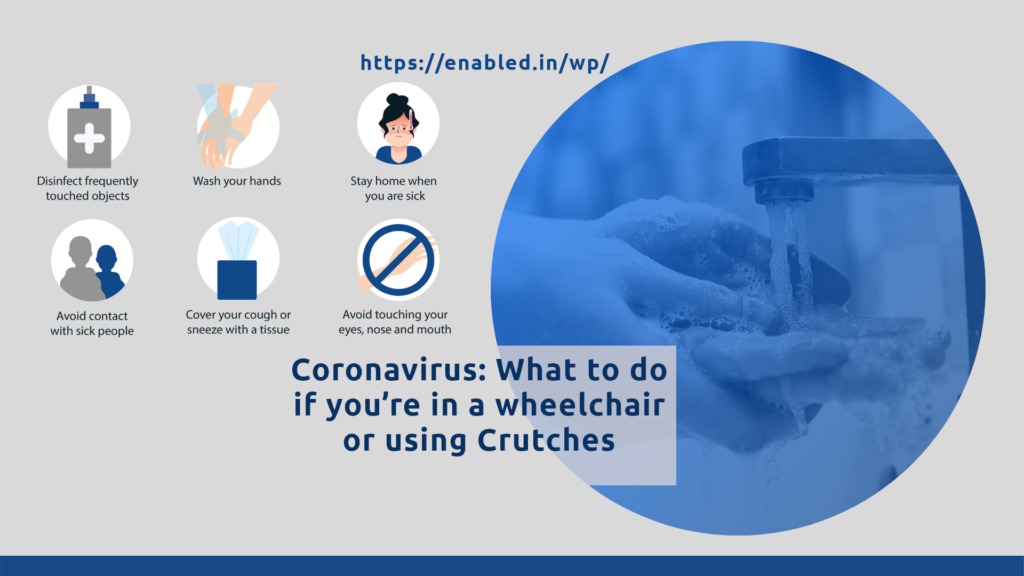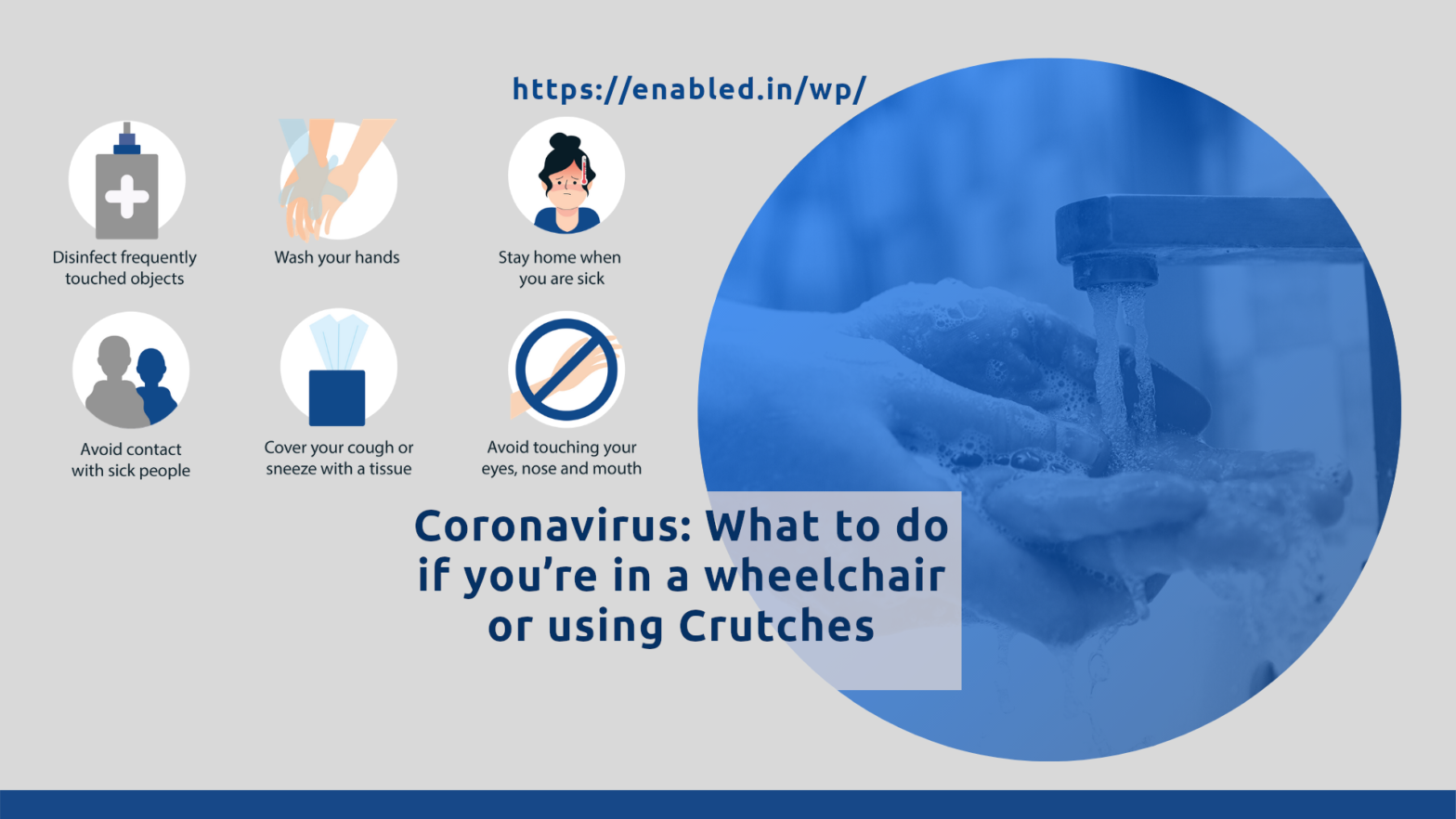Persons with disabilities, and especially wheelchair users and Crutches Users, the coronavirus poses unique challenges because wheelchair users and Crutches users are touched frequently and in many places.

We’ve compiled the following coronavirus tips for wheelchair users and Crutches Users to keep in mind when taking care of their mobility equipment and the environment around them.
Taking care of your Equipment
In addition to taking care of your equipment, be sure to also take care of you! Wash your hands often, for at least 20 seconds, especially before and after cleaning equipment, as well as anytime you arrive back at your home after being outside.
visit our page Conona page https://enabled.in/wp/tag/coronavirus/ for persons with disabilities
Surface Clean
Because the coronavirus can live for up to 72 hours on hard surfaces, it’s important to conduct regular cleaning. To protect against the coronavirus, surfaces need to be both cleaned and disinfected. Beyond any type of cleaning you may already do to your chair you should also disinfect areas that are frequently touched.
- Surfaces can be cleaned with soap and water.
- Disinfect with EPA-approved wipes that contain at least a 70% alcohol solution, or other approved store-bought solutions.
Cleaning Components of your Wheelchair and Crutches
There are many, many components on a chair that are touched frequently – by users and caregivers or supporters. Here’s some to keep in mind that should be disinfected anytime a new person comes in contact with your chair or Crutches, or you leave and return to your home.
- Crutches holder
- Crutches pipe
- Joystick
- Head controls
- Mouth controls
- Head rest
- Arm rests
- Side guards
- Back of the wheelchair
- Push handles
Cleaning Assistive Equipment
Beyond your wheelchair, other frequently touched equipment and medical supplies should also be disinfected. These include:
- Mobility aids, such as wheelchairs, scooters, walkers, canes, crutches, prosthetic devices, and orthotic devices
- Hearing aids
- Computer software and hardware, such as voice recognition programs, screen readers, and screen enlargement applications, to help people with mobility and sensory impairments use computers and mobile devices
- Physical modifications in the built environment, including ramps, grab bars, and wider doorways to enable access to buildings, businesses, and workplaces
- bathroom grab bars
- medications dispensers/reminder systems
- beds with special features that increase the person’s ability to get in and out of bed
- assistive telephones (for hearing-impaired and sight-impaired persons)
- assistive stovetop burners (for sight-impaired persons)
- door alarms (for persons with dementia at risk for wandering)
- walkers and canes and wheelchairs
- entry ramps
- Any equipment that you handle or put near your mouth
- Oxygen tanks
- Steering wheel and door buttons on vehicles
- Transfer seats
- Medication or other items in your home
- A backpack or purse that touches your chair
Important Indian Govt Helpline For Corona – Virus
Dial National Helpline Number
+91-11-23978046 or 1075
State and Union Help line Number
View the Pdf for Help Line
Helpline Email ID
ncov2019[at]gov[dot]in
States / UTs for quarantine
Guidelines
ref : https://www.numotion.com/blog
